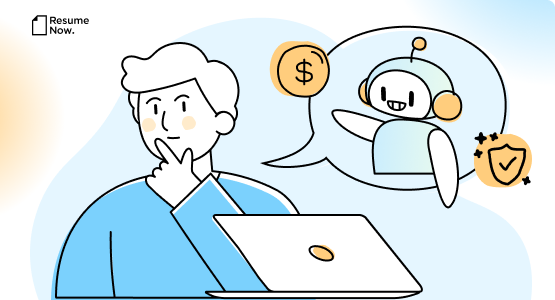AI is increasingly shaping how pay and bonuses are decided. In Resume Now's AI in Pay Report, 56% of U.S. workers say AI's role in compensation is already much larger than it was three years ago, and 63% expect it to grow significantly in the next five years.
Employees are open to AI if it comes with clear boundaries: limits, oversight, transparency, and a human backstop. Trust is rising, but most still want independent reviews of pay algorithms before they buy into AI in compensation management.
Key Findings
- 56% say they think AI plays a much larger role in pay decisions than it did three years ago.
- 63% expect AI's role in compensation to grow significantly in the next five years.
- 68% believe AI's involvement makes pay and bonus decisions more fair.
- 68% would trust pay decisions more if AI were involved.
- 94% say AI pay algorithms should be reviewed by an independent third party.
The Role of AI: Then and Now
Here is how workers say AI's influence on pay has changed and where they think it is headed. The first set looks back three years, and the second projects five years ahead.
- Compared to 3 years ago
- 56% say AI's role in pay decisions is much larger today.
- 38% say it is slightly larger.
- 6% say it's about the same.
- Looking 5 years ahead
- 63% expect AI to play a significantly bigger role in pay decisions.
- 34% say it will play a somewhat bigger role.
- 3% say it will stay about the same.
What this means: AI will likely shape many employees' next raises and bonuses. While many workers fear AI-related disruptions to their careers, AI in pay decisions has the potential to improve fairness and trust. Employees can safeguard fairness by requesting transparency on pay bands and model factors, keeping dated records of achievements and scope changes, and requesting a human review when outcomes appear misaligned.
Regular check-ins add context that algorithms may miss, such as stretch assignments or shifting responsibilities. The aim is for AI to support a fair process that reflects actual impact.
Fairness and Trust in AI Decisions
Workers are cautiously optimistic about AI's impact on compensation. In a climate where employees are increasingly turning to AI for mentorship and advice, many trust AI's decision-making capabilities and think that AI processes can improve fairness, provided there is clarity about how decisions are made and opportunities for human review.
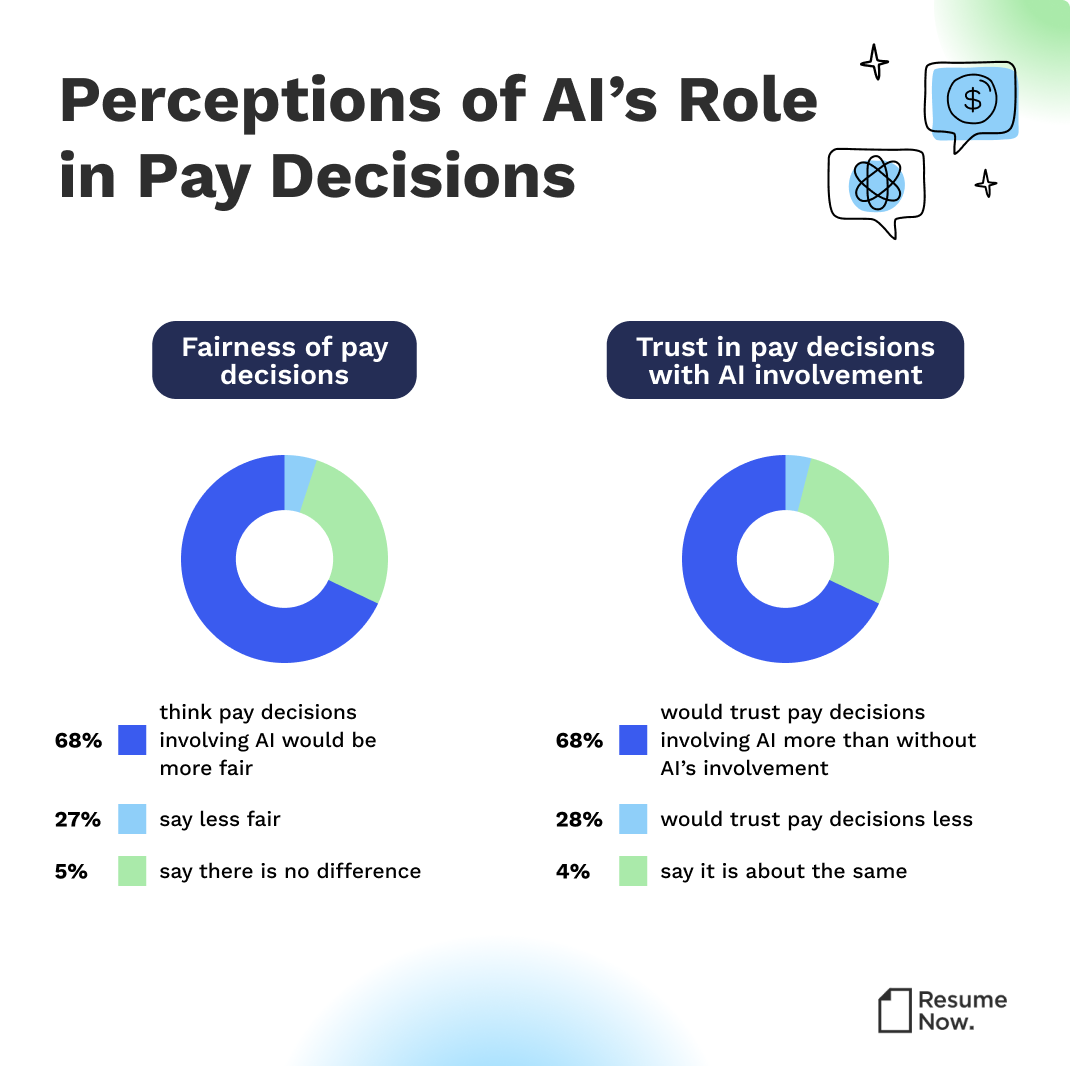
- Fairness of pay decisions
- 68% think pay decisions involving AI would be fairer.
- 27% say pay decisions would be less fair.
- 5% say there would be no difference.
- Trust in pay decisions with AI involvement
- 68% would trust pay decisions involving AI more than without AI's involvement.
- 28% would trust pay decisions less with AI involvement.
- 4% say their trust level would be about the same.
What this means: Building confidence in AI-assisted pay requires transparency and documentation. Employees benefit from clear pay bands, plain-language explanations of model factors, and a defined appeal process that involves a human reviewer. Keeping dated records of outcomes and contributions helps align AI recommendations with real performance, which in turn supports trust across the organization.
Oversight, Safeguards, and Concerns
Many workers back AI in compensation only when strong guardrails are in place. Support hinges on unbiased models, transparency, and a clear human review path.
- 93% would welcome AI if it eliminated unconscious bias.
- 94% say independent third-party review of algorithms is an essential safeguard.
- 65% worry about algorithm bias.
- 54% cite lack of transparency.
- 45% fear replacing human judgment.
- 20% cite errors or misinterpretations.
- Only 2% say they have no concerns at all.
What this means: Employees are most likely to trust AI-assisted pay decisions when organizations provide third-party audits, plain-language explanations of how models work, access to pay bands, and a documented appeal process with a human reviewer. Keeping dated records of goals, outcomes, and scope changes equips employees to supply context during reviews and to challenge errors constructively. With these safeguards, AI can deliver consistency while managers provide accountability and nuance.
Looking for a change of scenery? Resume Now's AI Resume Builder can help you land a new role by creating or updating your resume to meet the standards of the competitive job market.
Methodology
The findings provided were gathered through a survey conducted with 884 U.S. workers on August 28, 2025. Participants were asked a range of questions about their views on the role of AI in compensation, including its fairness, comfort levels with adoption, oversight and transparency expectations, and its potential influence on career decisions.
Participants responded to various question types, including yes/no questions, open-ended responses, scale-based agreement questions, and multiple-selection answer formats.
About Resume Now
Resume Now is a powerful resource dedicated to helping job-seekers achieve their potential. Resume Now's AI Resume Builder is a cutting-edge tool that makes creating a resume fast, easy, and painless. Resume Now has been dedicated to serving job seekers since 2005. Alongside its powerful AI Resume Builder and stylish ready-to-use templates, it also features free advice for job seekers at every career stage, guides for every step of the hiring process, and free resources for writing cover letters. Resume Now is committed to supporting job seekers and workers alike and has conducted numerous surveys related to the experience, trends, and culture of the workplace. These surveys have been featured in Business Insider, CNBC, Fast Company, Yahoo!, Forbes, and more. Keep up with Resume Now on LinkedIn, Facebook, X, and Pinterest.
For press inquiries, contact Kathy Gardner at kathy.gardner@bold.com.
Keith is a Certified Professional Resume Writer (CPRW) and trusted media source in the career industry with over a decade of experience helping job seekers stand out.
More resources
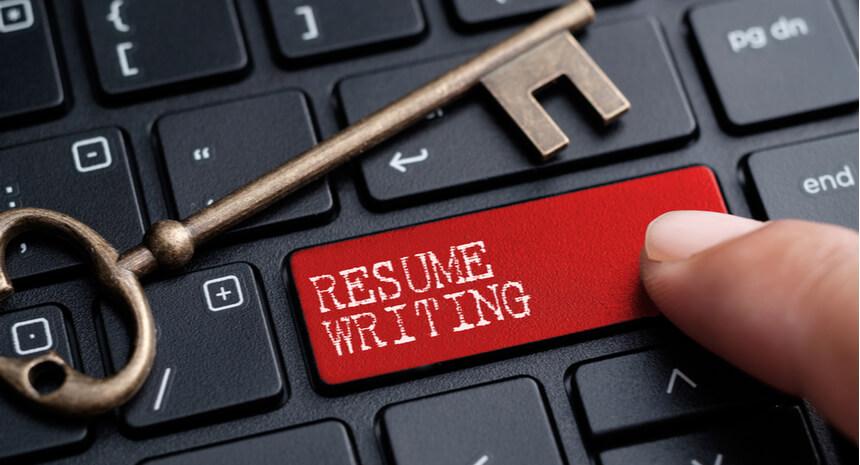
How to Write a Resume: Guide & Examples for 2026
If you re wondering how to write a resume that grabs attenti...

Summary of Qualifications: 13 Examples for Your Resume
Our guide will help you write a summary of qualifications that...

Purchasing Resume: Examples & Templates
As a purchasing professional you need a resume that captures ...
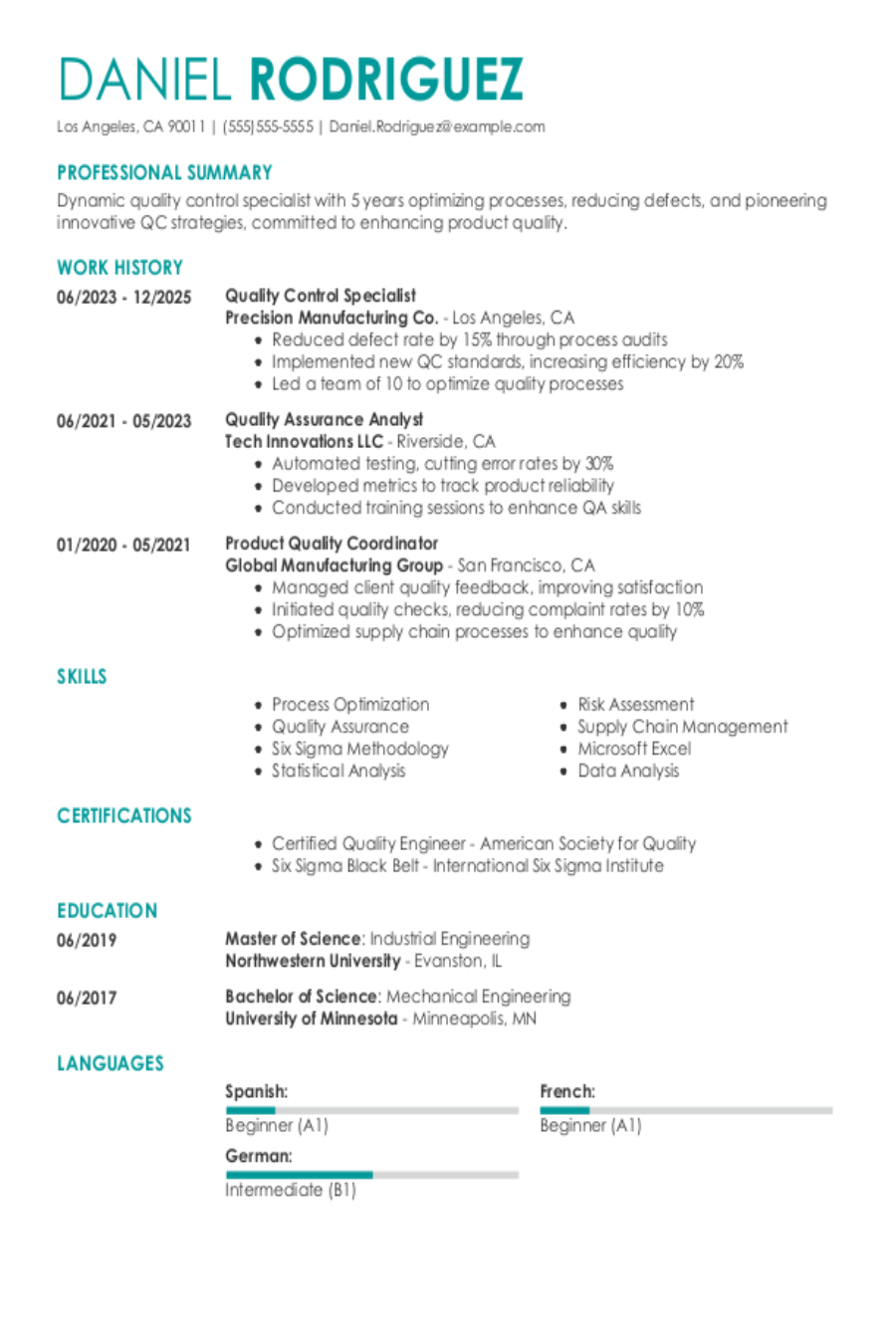
Quality Control Resume: Examples & Templates
As a quality control professional you need a resume that high...
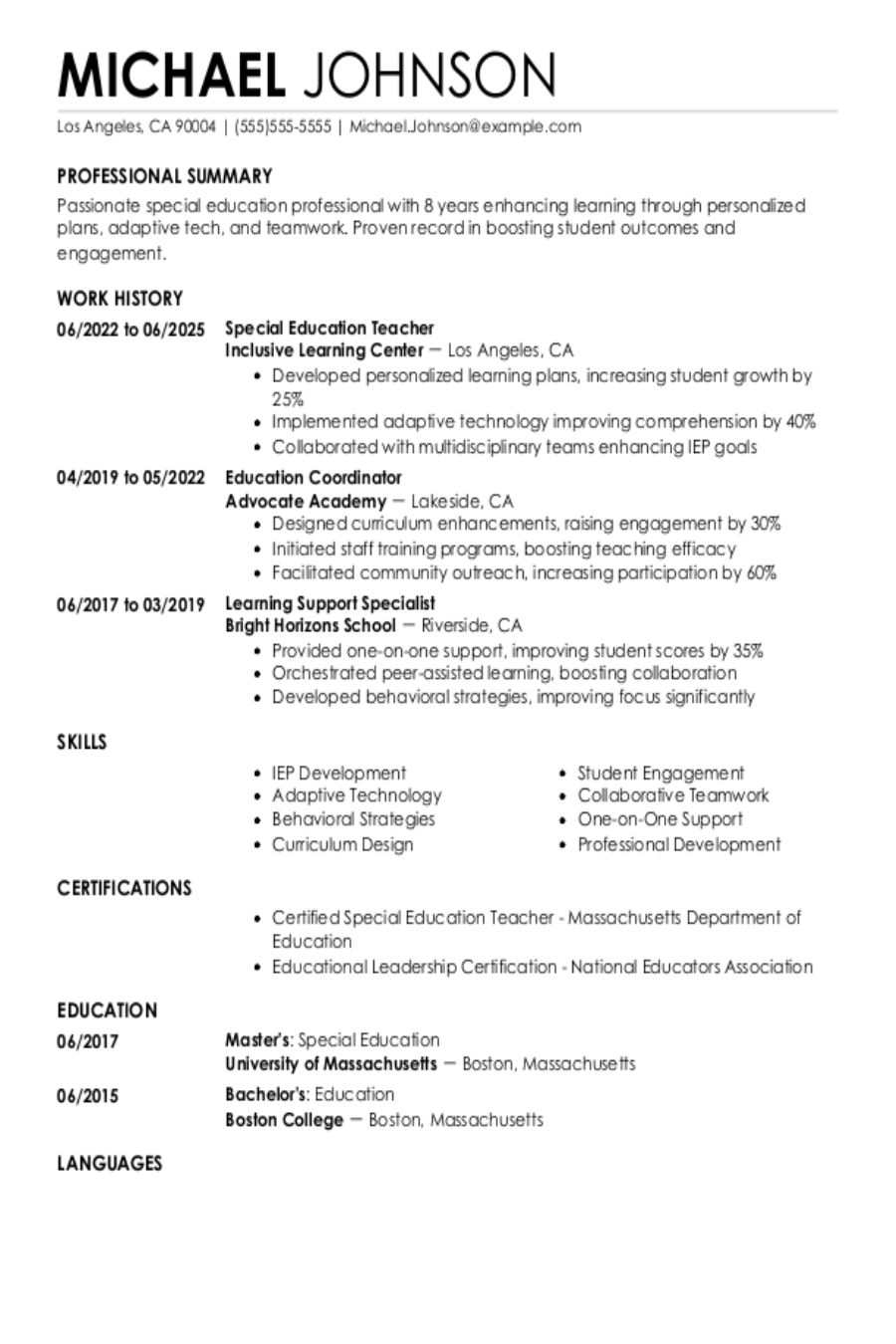
Special Education Resume: Examples & Templates
As a special education professional your resume must highligh...
